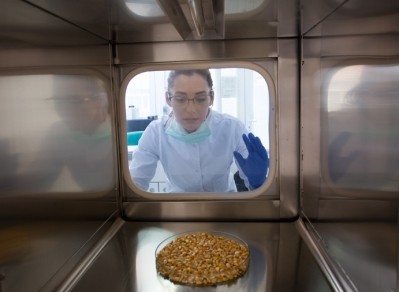'Imagine being able to edit the microbiome' - TechAccel talks animal nutrition targeted innovation

We caught up with Brad Fabbri, chief science officer with Technology Acceleration Partners, or TechAccel, to hear more about current and upcoming areas for innovation in feed and animal health and how the Kansas City-based company operates.
The firm was established to support or expand innovative efforts in areas such as animal nutrition and animal health, he said. “It’s like an incubator, and we still do that, and we act like a venture firm,” he added.
Currently, the comapny is tracking research or product development in relation to vaccines, antibiotic alternatives, micronutrients, bacteriophages and the microbiome.
Several agriculture sector linked projects have already made TechAccel sit up and notice. It has invested in funding rounds for Benson Hill Biosystems and Agrivida. “We made an investment in the E round of Agrivida – [they are] low-cost producers of feed enzymes,” he said.
The company invests about $5 to $7m annually in those kind of projects, he continued. “And we’re interested in functional foods, something like an improved wheat that could be useful for either human or animal nutrition."
Innovation trends on the ‘cusp’
He said the company is interested in backing efforts to optimize vaccines or to reduce stress that would allow producers to move away from an over reliance on antibiotics in production.
“There are better ways to vaccinate and ways to avoid the use of antibiotics, like bacteriophages, and [in terms of] work with the microbiome – nobody has quite figured it out yet,” he said. “Imagine being able to edit the microbiome.”
Looking forward, there could be a place for inexpensive sensors to warn producers that an animal is becoming ill or they could predict what kind of feed or management an individual animal needs, said Fabbri. “We’re on the cusp of a lot of things."
“We need an efficient way to do whole lifestyle tracking of animal and plant commodities so you could be in a grocery store and see where your chicken [was raised] and what it ate,” he said. “The consumer will feel better if they have the ability to find out that information.”
Additionally, there is more work to be done around optimizing insect production and algae for livestock production, he said.
“We could do high tech, but our specific thesis is broader agriculture and animal nutrition, and we’re seeing a ton of opportunity,” he added.
Academic collaboration
The company has developed relationships with several universities and researchers, said Fabbri. It licenses technologies of interest and then helps “de-risk” the work or supports start-up projects.
“They’re only going to sell things if they’re making it easier for producers at the end of the year,” he added.
TechAccel also seeks to support development to a point where a company within the animal nutrition or health industry would be interested in acquiring it, he said.
The effort starts with an understanding of what the farmer, or poultry producer or feedlot requires, he said.
“It would be great to find the next iPhone concept. I’m not saying we will, but it is in our mind,” said Fabbri. “But the only way to do that is to know what, ultimately, does the industry want?”












